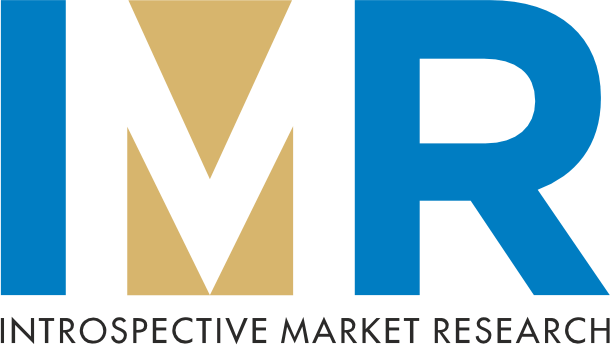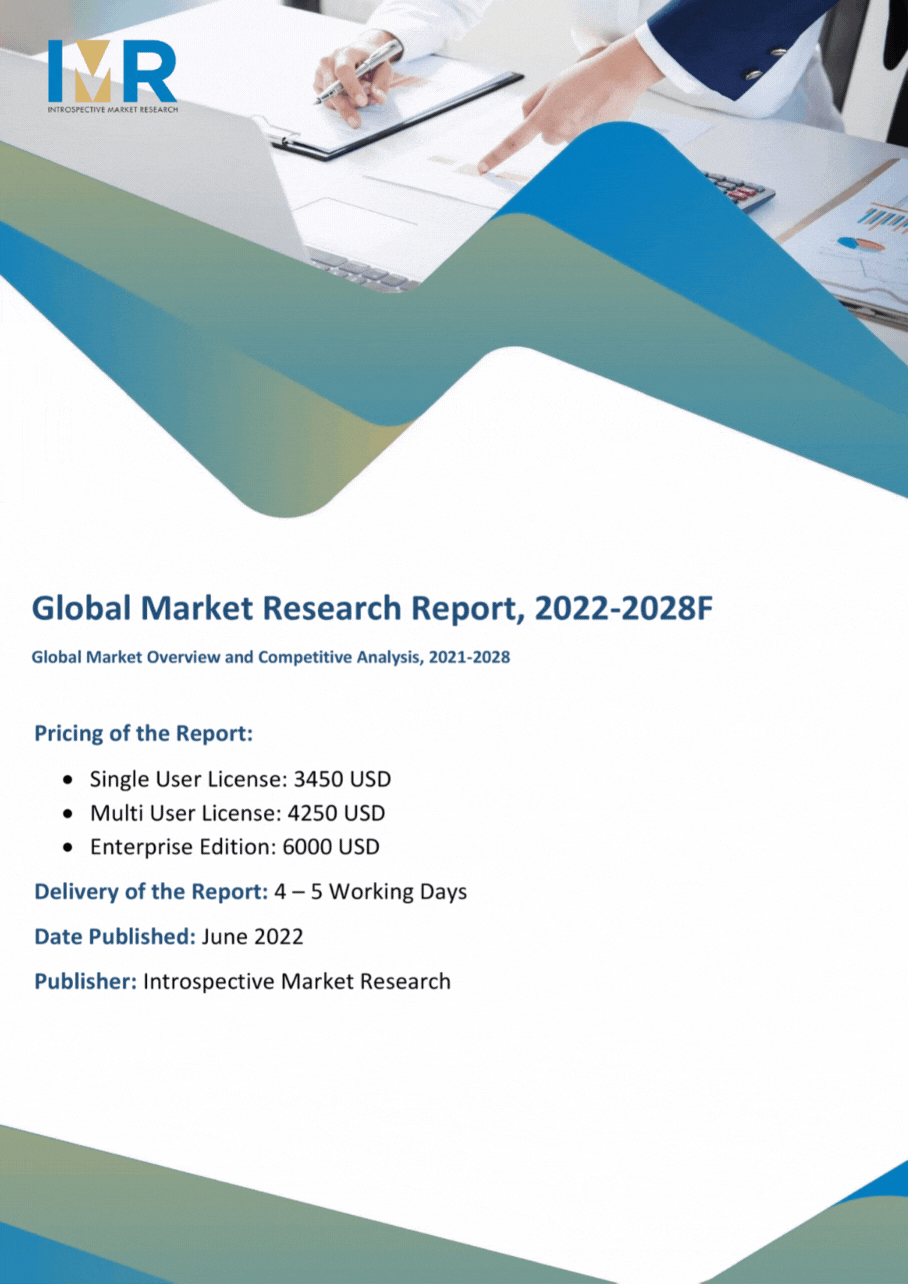Edible Insect Market Synopsis
Edible Insect Market Size Was Valued at USD 237.15 Million in 2022, and is Projected to Reach USD 1291.73 Billion by 2030, Growing at a CAGR of 23.6% From 2023-2030.
Edible insects are those which are used for consumption for human being and animal as nutrition. There are different varieties of insects available in nature which are edible to human as meal and snacks. With increasing demand for animal-based food and protein to provide large number of populations, insects are being used as source of meal and protein.
- Edible insects, such as crickets, mealworms, and grasshoppers, are rich in protein, vitamins, and minerals, making them a nutritious and sustainable food option. As the world population continues to grow, there is a pressing need for protein sources that are both efficient and environmentally friendly. Insects have a much smaller ecological footprint compared to traditional livestock, requiring less land, water, and feed to produce the same amount of protein.
- Furthermore, the edible insect market is gaining traction due to a growing awareness of the environmental impact of food production. Insects emit fewer greenhouse gases, consume less water, and produce less waste compared to traditional livestock, contributing to a more sustainable and eco-friendly food system. Consumers are increasingly drawn to products that align with their values of environmental responsibility and ethical consumption, and edible insects fit into this narrative.
- In addition, the rise of the health and wellness trend has contributed to the popularity of edible insects. These insects are not only a sustainable protein source but also offer unique nutritional benefits, such as high-quality protein, healthy fats, and essential vitamins and minerals. As people become more conscious of their dietary choices, the nutritional profile of edible insects becomes a compelling factor in their adoption.

Edible Insect Market Trend Analysis
Rising Awareness About Protein-Rich Food Products
- The growing awareness of protein-rich edible insect products is the increasing global demand for alternative protein sources. Traditional protein sources like meat and dairy are associated with environmental concerns such as deforestation, greenhouse gas emissions, and water usage. Insects, on the other hand, are highly efficient in converting feed into protein, requiring less land, water, and resources to produce.
- Additionally, insects are rich in essential nutrients, including high-quality proteins, vitamins, and minerals. Consumers are becoming more educated about the nutritional benefits of edible insects, recognizing them as a viable and sustainable alternative to conventional protein sources. Edible insects such as crickets, mealworms, and grasshoppers are not only protein-dense but also contain healthy fats and important micronutrients.
- The rise of fitness and wellness trends has also contributed to the increasing popularity of protein-rich foods, including edible insects. Athletes and fitness enthusiasts are seeking diverse and sustainable protein options to support their active lifestyles, and edible insects fit the bill by providing a complete and bioavailable protein source.
- Moreover, the culinary landscape is evolving, and chefs are experimenting with incorporating edible insects into innovative and delicious dishes. As these insect-based products become more palatable and accessible, consumers are more willing to embrace them as part of their regular diet.
Changing Consumption Patterns of Athletes and Sports Person creates an opportunity for Edible Insect Market.
- Edible insects are rich in high-quality protein, essential amino acids, vitamins, and minerals. They offer a sustainable and eco-friendly alternative to traditional protein sources, as insect farming generally requires fewer resources such as water, land, and feed compared to livestock farming. This aligns with the increasing emphasis on sustainable and ethical practices within the sports industry.
- Athletes are increasingly recognizing the importance of a well-balanced and nutrient-dense diet to enhance their performance, support muscle recovery, and maintain overall health. Edible insects not only provide a nutritionally dense profile but also contribute to the diversification of dietary options. This diversification is crucial for athletes who may face dietary restrictions or preferences, allowing them to tailor their nutrition plans to meet specific goals.
- Furthermore, the compact nature of edible insect products, such as protein bars or powders, makes them convenient for athletes with active lifestyles. The portability and long shelf life of insect-based products cater to the on-the-go nature of training and competition schedules, providing a practical solution for athletes looking for quick and sustainable nutrition.
Edible Insect Market Segment Analysis:
Edible Insect Market Segmented on the basis of insect type, product, application.
By Insect Type, Grasshopper segment is expected to dominate the market during the forecast period
- Grasshoppers are rich in protein, essential amino acids, and micronutrients, making them a nutritious and sustainable food source. As the global demand for alternative protein sources continues to rise, grasshoppers are gaining attention for their nutritional profile. Moreover, grasshoppers are ecologically advantageous, requiring minimal resources such as water and feed compared to traditional livestock. Their high reproduction rate and short life cycle contribute to a more efficient and sustainable production process. Additionally, grasshoppers are versatile in culinary applications, being easily incorporated into various dishes, appealing to consumers seeking diverse and eco-friendly protein options.
By Product, Bar segment held the largest share in 2022.
- There is an increasing awareness of the environmental and sustainability benefits of insect consumption. Edible insects are rich in proteins, vitamins, and minerals, making them an attractive alternative to traditional protein sources with a lower environmental footprint. Bars offer a convenient and palatable way for consumers to incorporate insects into their diets, overcoming the psychological barrier associated with consuming whole insects. Moreover, the snack bar format aligns with modern dietary trends, catering to on-the-go lifestyles. As consumers seek innovative and sustainable protein sources, insect-based bars emerge as a flavorful and eco-friendly choice, propelling the growth of this market segment.
Edible Insect Market Regional Insights:
Asia Pacific is Expected to Dominate the Market Over the Forecast period
- Asia-Pacific region experiencing significant growth. In recent years, countries in Asia-Pacific, such as China, Thailand, Vietnam, and Cambodia, have witnessed a surge in the consumption of edible insects. These insects, rich in protein and other essential nutrients, are gaining popularity as a sustainable and nutritious food source. Cultural acceptance of insect consumption in many Asian countries plays a crucial role. Insects have been a traditional part of diets in some cultures, making it easier for these populations to adopt them as a mainstream food item. Additionally, the rising awareness of the environmental benefits of insect farming, including reduced greenhouse gas emissions and efficient land use, has fueled interest in edible insects.
- Furthermore, government initiatives and policies supporting the insect farming industry have facilitated its growth. In some cases, subsidies and incentives have been provided to encourage entrepreneurs to invest in insect farming for both human consumption and animal feed.
Edible Insect Market Top Key Players:
- Coalo Vally Farms (US)
- Cricket Lab (U.K.)
- JR Unique Foods Ltd., Part(Thailand)
- Global Bugs Asia Co., Ltd. (Thailand)
- Haocheng Mealworm Inc. (China)
- Kreca Ento-Food BV (The Netherlands)
- Aspire Food Group (US)
- All Things Bugs, Llc (US)
- Beta Hatch Inc. (US)
- The Bühler Holding Ag (Switzerland)
- Agriprotien Technologies (South Africa)
- Chapul (US)
- Thailand Unique (Thailand)
- Six Foods (US)
- Crowbar Protein (Iceland)
- Gathr Foods (United Kingdom)
- Protix (Netherlands)
- Ynsect (France) and other major players.
Key Industry Developments in the Edible Insect Market:
- In September 2022 - LOTTE Confectionary Co. Ltd ("LOTTE") and Aspire Food Group Ltd. ("Aspire") have signed an MOU to formalize their cooperation in the distribution and promotion of crickets as food. The MOU confirms Aspire's desire to have LOTTE act as exclusive distributor to distribute and sell products produced by Aspire and LOTTE Confectionary in key markets in Asia as well as Europe.
- In June 2022 - Aspire Food Group Ltd. announced a new Chair in the Production and Primary Processing of Edible Insects. The Chair will be held by Marie-Hélène Deschamps, a professor at Université Laval’s Faculty of Agriculture and Food Sciences.
|
Global Edible Insect Market |
|||
|
Base Year: |
2022 |
Forecast Period: |
2023-2030 |
|
Historical Data: |
2017 to 2022 |
Market Size in 2022: |
USD 237.15 Mn. |
|
Forecast Period 2023-30 CAGR: |
23.6 % |
Market Size in 2030: |
USD 1291.73 Mn. |
|
Segments Covered: |
By Insect Type |
|
|
|
By Product |
|
||
|
By Application |
|
||
|
By Region |
|
||
|
Key Market Drivers: |
|
||
|
Key Market Restraints: |
|
||
|
Key Opportunities: |
|
||
|
Companies Covered in the report: |
|
||
- INTRODUCTION
- RESEARCH OBJECTIVES
- RESEARCH METHODOLOGY
- RESEARCH PROCESS
- SCOPE AND COVERAGE
- Market Definition
- Key Questions Answered
- MARKET SEGMENTATION
- EXECUTIVE SUMMARY
- MARKET OVERVIEW
- GROWTH OPPORTUNITIES BY SEGMENT
- MARKET LANDSCAPE
- PORTER’S FIVE FORCES ANALYSIS
- Bargaining Power Of Supplier
- Threat Of New Entrants
- Threat Of Substitutes
- Competitive Rivalry
- Bargaining Power Among Buyers
- INDUSTRY VALUE CHAIN ANALYSIS
- MARKET DYNAMICS
- Drivers
- Restraints
- Opportunities
- Challenges
- MARKET TREND ANALYSIS
- REGULATORY LANDSCAPE
- PESTLE ANALYSIS
- PRICE TREND ANALYSIS
- PATENT ANALYSIS
- TECHNOLOGY EVALUATION
- MARKET IMPACT OF THE RUSSIA-UKRAINE WAR
- Geopolitical Market Disruptions
- Supply Chain Disruptions
- Instability in Emerging Markets
- ECOSYSTEM
- PORTER’S FIVE FORCES ANALYSIS
- EDIBLE INSECT MARKET BY INSECT TYPE (2016-2030)
- EDIBLE INSECT MARKET SNAPSHOT AND GROWTH ENGINE
- MARKET OVERVIEW
- RHINOCEROS BEETLES
- Introduction And Market Overview
- Historic And Forecasted Market Size in Value (2016 – 2030F)
- Historic And Forecasted Market Size in Volume (2016 – 2030F)
- Key Market Trends, Growth Factors And Opportunities
- Geographic Segmentation Analysis
- ANTS
- GRASSHOPPER
- SILKWORMS
- CRICKETS
- OTHERS
- EDIBLE INSECT MARKET BY PRODUCT (2016-2030)
- EDIBLE INSECT MARKET SNAPSHOT AND GROWTH ENGINE
- MARKET OVERVIEW
- Whole Insect
- Introduction And Market Overview
- Historic And Forecasted Market Size in Value (2016 – 2030F)
- Historic And Forecasted Market Size in Volume (2016 – 2030F)
- Key Market Trends, Growth Factors And Opportunities
- Geographic Segmentation Analysis
- POWDER
- BAR
- OTHERS
- EDIBLE INSECT MARKET BY APPLICATION (2016-2030)
- EDIBLE INSECT MARKET SNAPSHOT AND GROWTH ENGINE
- MARKET OVERVIEW
- HUMAN CONSUMPTION
- Introduction And Market Overview
- Historic And Forecasted Market Size in Value (2016 – 2030F)
- Historic And Forecasted Market Size in Volume (2016 – 2030F)
- Key Market Trends, Growth Factors And Opportunities
- Geographic Segmentation Analysis
- ANIMAL FEED
- COSMETICS
- PHARMACEUTICALS
- OTHERS
- COMPANY PROFILES AND COMPETITIVE ANALYSIS
- COMPETITIVE LANDSCAPE
- Competitive Positioning
- EDIBLE INSECT Market Share By Manufacturer (2022)
- Industry BCG Matrix
- Heat Map Analysis
- Mergers & Acquisitions
- COALO VALLY FARMS (US)
- Company Overview
- Key Executives
- Company Snapshot
- Role of the Company in the Market
- Sustainability and Social Responsibility
- Operating Business Segments
- Product Portfolio
- Business Performance (Production Volume, Sales Volume, Sales Margin, Production Capacity, Capacity Utilization Rate)
- Key Strategic Moves And Recent Developments
- SWOT Analysis
- ASPIRE FOOD GROUP (US)
- ALL THINGS BUGS, LLC (US)
- BETA HATCH INC. (US)
- CRICKET LAB (U.K.)
- JR UNIQUE FOODS LTD., PART (THAILAND)
- GLOBAL BUGS ASIA CO., LTD. (THAILAND)
- HAOCHENG MEALWORM INC. (CHINA)
- KRECA ENTO-FOOD BV (THE NETHERLANDS)
- BETA HATCH INC. (US)
- THE BÜHLER HOLDING AG (SWITZERLAND)
- AGRIPROTIEN TECHNOLOGIES (SOUTH AFRICA)
- CHAPUL (US)
- THAILAND UNIQUE (THAILAND)
- SIX FOODS (US)
- CROWBAR PROTEIN (ICELAND)
- GATHR FOODS (UNITED KINGDOM)
- PROTIX (NETHERLANDS)
- YNSECT (FRANCE)
- COMPETITIVE LANDSCAPE
- GLOBAL EDIBLE INSECT MARKET BY REGION
- OVERVIEW
- NORTH AMERICA
- Key Market Trends, Growth Factors And Opportunities
- Key Manufacturers
- Historic And Forecasted Market Size By Segment1
- Historic And Forecasted Market Size By Segment2
- Historic And Forecasted Market Size By Segment3
- Historic And Forecasted Market Size By Segment4
- Historic And Forecasted Market Size By Segment5
- Historic And Forecasted Market Size By Segment6
- Historic And Forecasted Market Size By Country
- USA
- Canada
- Mexico
- EASTERN EUROPE
- Key Market Trends, Growth Factors And Opportunities
- Key Manufacturers
- Historic And Forecasted Market Size By Segments
- Historic And Forecasted Market Size By Country
- Russia
- Bulgaria
- The Czech Republic
- Hungary
- Poland
- Romania
- Rest Of Eastern Europe
- WESTERN EUROPE
- Key Market Trends, Growth Factors And Opportunities
- Key Manufacturers
- Historic And Forecasted Market Size By Segments
- Historic And Forecasted Market Size By Country
- Germany
- United Kingdom
- France
- The Netherlands
- Italy
- Spain
- Rest Of Western Europe
- ASIA PACIFIC
- Key Market Trends, Growth Factors And Opportunities
- Key Manufacturers
- Historic And Forecasted Market Size By Segments
- Historic And Forecasted Market Size By Country
- China
- India
- Japan
- South Korea
- Malaysia
- Thailand
- Vietnam
- The Philippines
- Australia
- New-Zealand
- Rest Of APAC
- MIDDLE EAST & AFRICA
- Key Market Trends, Growth Factors And Opportunities
- Key Manufacturers
- Historic And Forecasted Market Size By Segments
- Historic And Forecasted Market Size By Country
- Turkey
- Bahrain
- Kuwait
- Saudi Arabia
- Qatar
- UAE
- Israel
- South Africa
- SOUTH AMERICA
- Key Market Trends, Growth Factors And Opportunities
- Key Manufacturers
- Historic And Forecasted Market Size By Segments
- Historic And Forecasted Market Size By Country
- Brazil
- Argentina
- Rest of South America
- INVESTMENT ANALYSIS
- ANALYST VIEWPOINT AND CONCLUSION
- Recommendations and Concluding Analysis
- Potential Market Strategies
|
Global Edible Insect Market |
|||
|
Base Year: |
2022 |
Forecast Period: |
2023-2030 |
|
Historical Data: |
2017 to 2022 |
Market Size in 2022: |
USD 237.15 Mn. |
|
Forecast Period 2023-30 CAGR: |
23.6 % |
Market Size in 2030: |
USD 1291.73 Mn. |
|
Segments Covered: |
By Insect Type |
|
|
|
By Product |
|
||
|
By Application |
|
||
|
By Region |
|
||
|
Key Market Drivers: |
|
||
|
Key Market Restraints: |
|
||
|
Key Opportunities: |
|
||
|
Companies Covered in the report: |
|
||
LIST OF TABLES
TABLE 001. EXECUTIVE SUMMARY
TABLE 002. EDIBLE INSECT MARKET BARGAINING POWER OF SUPPLIERS
TABLE 003. EDIBLE INSECT MARKET BARGAINING POWER OF CUSTOMERS
TABLE 004. EDIBLE INSECT MARKET COMPETITIVE RIVALRY
TABLE 005. EDIBLE INSECT MARKET THREAT OF NEW ENTRANTS
TABLE 006. EDIBLE INSECT MARKET THREAT OF SUBSTITUTES
TABLE 007. EDIBLE INSECT MARKET BY INSECT TYPE
TABLE 008. RHINOCEROS BEETLES MARKET OVERVIEW (2016-2028)
TABLE 009. ANTS MARKET OVERVIEW (2016-2028)
TABLE 010. GRASSHOPPER MARKET OVERVIEW (2016-2028)
TABLE 011. SILKWORMS MARKET OVERVIEW (2016-2028)
TABLE 012. CRICKETS MARKET OVERVIEW (2016-2028)
TABLE 013. OTHERS MARKET OVERVIEW (2016-2028)
TABLE 014. EDIBLE INSECT MARKET BY PRODUCT
TABLE 015. WHOLE INSECT MARKET OVERVIEW (2016-2028)
TABLE 016. POWDER MARKET OVERVIEW (2016-2028)
TABLE 017. BAR MARKET OVERVIEW (2016-2028)
TABLE 018. OTHERS MARKET OVERVIEW (2016-2028)
TABLE 019. EDIBLE INSECT MARKET BY APPLICATION
TABLE 020. HUMAN CONSUMPTION MARKET OVERVIEW (2016-2028)
TABLE 021. ANIMAL FEED MARKET OVERVIEW (2016-2028)
TABLE 022. COSMETICS MARKET OVERVIEW (2016-2028)
TABLE 023. PHARMACEUTICALS MARKET OVERVIEW (2016-2028)
TABLE 024. OTHERS MARKET OVERVIEW (2016-2028)
TABLE 025. NORTH AMERICA EDIBLE INSECT MARKET, BY INSECT TYPE (2016-2028)
TABLE 026. NORTH AMERICA EDIBLE INSECT MARKET, BY PRODUCT (2016-2028)
TABLE 027. NORTH AMERICA EDIBLE INSECT MARKET, BY APPLICATION (2016-2028)
TABLE 028. N EDIBLE INSECT MARKET, BY COUNTRY (2016-2028)
TABLE 029. EUROPE EDIBLE INSECT MARKET, BY INSECT TYPE (2016-2028)
TABLE 030. EUROPE EDIBLE INSECT MARKET, BY PRODUCT (2016-2028)
TABLE 031. EUROPE EDIBLE INSECT MARKET, BY APPLICATION (2016-2028)
TABLE 032. EDIBLE INSECT MARKET, BY COUNTRY (2016-2028)
TABLE 033. ASIA PACIFIC EDIBLE INSECT MARKET, BY INSECT TYPE (2016-2028)
TABLE 034. ASIA PACIFIC EDIBLE INSECT MARKET, BY PRODUCT (2016-2028)
TABLE 035. ASIA PACIFIC EDIBLE INSECT MARKET, BY APPLICATION (2016-2028)
TABLE 036. EDIBLE INSECT MARKET, BY COUNTRY (2016-2028)
TABLE 037. MIDDLE EAST & AFRICA EDIBLE INSECT MARKET, BY INSECT TYPE (2016-2028)
TABLE 038. MIDDLE EAST & AFRICA EDIBLE INSECT MARKET, BY PRODUCT (2016-2028)
TABLE 039. MIDDLE EAST & AFRICA EDIBLE INSECT MARKET, BY APPLICATION (2016-2028)
TABLE 040. EDIBLE INSECT MARKET, BY COUNTRY (2016-2028)
TABLE 041. SOUTH AMERICA EDIBLE INSECT MARKET, BY INSECT TYPE (2016-2028)
TABLE 042. SOUTH AMERICA EDIBLE INSECT MARKET, BY PRODUCT (2016-2028)
TABLE 043. SOUTH AMERICA EDIBLE INSECT MARKET, BY APPLICATION (2016-2028)
TABLE 044. EDIBLE INSECT MARKET, BY COUNTRY (2016-2028)
TABLE 045. HAOCHENG MEALWORMS: SNAPSHOT
TABLE 046. HAOCHENG MEALWORMS: BUSINESS PERFORMANCE
TABLE 047. HAOCHENG MEALWORMS: PRODUCT PORTFOLIO
TABLE 048. HAOCHENG MEALWORMS: KEY STRATEGIC MOVES AND DEVELOPMENTS
TABLE 048. AGRIPROTIEN TECHNOLOGIES: SNAPSHOT
TABLE 049. AGRIPROTIEN TECHNOLOGIES: BUSINESS PERFORMANCE
TABLE 050. AGRIPROTIEN TECHNOLOGIES: PRODUCT PORTFOLIO
TABLE 051. AGRIPROTIEN TECHNOLOGIES: KEY STRATEGIC MOVES AND DEVELOPMENTS
TABLE 051. CHAPUL: SNAPSHOT
TABLE 052. CHAPUL: BUSINESS PERFORMANCE
TABLE 053. CHAPUL: PRODUCT PORTFOLIO
TABLE 054. CHAPUL: KEY STRATEGIC MOVES AND DEVELOPMENTS
TABLE 054. THAILAND UNIQUE: SNAPSHOT
TABLE 055. THAILAND UNIQUE: BUSINESS PERFORMANCE
TABLE 056. THAILAND UNIQUE: PRODUCT PORTFOLIO
TABLE 057. THAILAND UNIQUE: KEY STRATEGIC MOVES AND DEVELOPMENTS
TABLE 057. SIX FOODS: SNAPSHOT
TABLE 058. SIX FOODS: BUSINESS PERFORMANCE
TABLE 059. SIX FOODS: PRODUCT PORTFOLIO
TABLE 060. SIX FOODS: KEY STRATEGIC MOVES AND DEVELOPMENTS
TABLE 060. CROWBAR PROTEIN: SNAPSHOT
TABLE 061. CROWBAR PROTEIN: BUSINESS PERFORMANCE
TABLE 062. CROWBAR PROTEIN: PRODUCT PORTFOLIO
TABLE 063. CROWBAR PROTEIN: KEY STRATEGIC MOVES AND DEVELOPMENTS
TABLE 063. BUGSOLUTELY: SNAPSHOT
TABLE 064. BUGSOLUTELY: BUSINESS PERFORMANCE
TABLE 065. BUGSOLUTELY: PRODUCT PORTFOLIO
TABLE 066. BUGSOLUTELY: KEY STRATEGIC MOVES AND DEVELOPMENTS
TABLE 066. CRIK NUTRITION: SNAPSHOT
TABLE 067. CRIK NUTRITION: BUSINESS PERFORMANCE
TABLE 068. CRIK NUTRITION: PRODUCT PORTFOLIO
TABLE 069. CRIK NUTRITION: KEY STRATEGIC MOVES AND DEVELOPMENTS
TABLE 069. GATHR FOODS: SNAPSHOT
TABLE 070. GATHR FOODS: BUSINESS PERFORMANCE
TABLE 071. GATHR FOODS: PRODUCT PORTFOLIO
TABLE 072. GATHR FOODS: KEY STRATEGIC MOVES AND DEVELOPMENTS
TABLE 072. HEXAFLY: SNAPSHOT
TABLE 073. HEXAFLY: BUSINESS PERFORMANCE
TABLE 074. HEXAFLY: PRODUCT PORTFOLIO
TABLE 075. HEXAFLY: KEY STRATEGIC MOVES AND DEVELOPMENTS
TABLE 075. INNOVA FEED: SNAPSHOT
TABLE 076. INNOVA FEED: BUSINESS PERFORMANCE
TABLE 077. INNOVA FEED: PRODUCT PORTFOLIO
TABLE 078. INNOVA FEED: KEY STRATEGIC MOVES AND DEVELOPMENTS
TABLE 078. HIPROMINE: SNAPSHOT
TABLE 079. HIPROMINE: BUSINESS PERFORMANCE
TABLE 080. HIPROMINE: PRODUCT PORTFOLIO
TABLE 081. HIPROMINE: KEY STRATEGIC MOVES AND DEVELOPMENTS
TABLE 081. PROTIX: SNAPSHOT
TABLE 082. PROTIX: BUSINESS PERFORMANCE
TABLE 083. PROTIX: PRODUCT PORTFOLIO
TABLE 084. PROTIX: KEY STRATEGIC MOVES AND DEVELOPMENTS
TABLE 084. ENTOMO FARMS: SNAPSHOT
TABLE 085. ENTOMO FARMS: BUSINESS PERFORMANCE
TABLE 086. ENTOMO FARMS: PRODUCT PORTFOLIO
TABLE 087. ENTOMO FARMS: KEY STRATEGIC MOVES AND DEVELOPMENTS
TABLE 087. ENVIROFLOGHT: SNAPSHOT
TABLE 088. ENVIROFLOGHT: BUSINESS PERFORMANCE
TABLE 089. ENVIROFLOGHT: PRODUCT PORTFOLIO
TABLE 090. ENVIROFLOGHT: KEY STRATEGIC MOVES AND DEVELOPMENTS
TABLE 090. YNSECT: SNAPSHOT
TABLE 091. YNSECT: BUSINESS PERFORMANCE
TABLE 092. YNSECT: PRODUCT PORTFOLIO
TABLE 093. YNSECT: KEY STRATEGIC MOVES AND DEVELOPMENTS
TABLE 093. OTHER MAJOR PLAYERS: SNAPSHOT
TABLE 094. OTHER MAJOR PLAYERS: BUSINESS PERFORMANCE
TABLE 095. OTHER MAJOR PLAYERS: PRODUCT PORTFOLIO
TABLE 096. OTHER MAJOR PLAYERS: KEY STRATEGIC MOVES AND DEVELOPMENTS
LIST OF FIGURES
FIGURE 001. YEARS CONSIDERED FOR ANALYSIS
FIGURE 002. SCOPE OF THE STUDY
FIGURE 003. EDIBLE INSECT MARKET OVERVIEW BY REGIONS
FIGURE 004. PORTER'S FIVE FORCES ANALYSIS
FIGURE 005. BARGAINING POWER OF SUPPLIERS
FIGURE 006. COMPETITIVE RIVALRYFIGURE 007. THREAT OF NEW ENTRANTS
FIGURE 008. THREAT OF SUBSTITUTES
FIGURE 009. VALUE CHAIN ANALYSIS
FIGURE 010. PESTLE ANALYSIS
FIGURE 011. EDIBLE INSECT MARKET OVERVIEW BY INSECT TYPE
FIGURE 012. RHINOCEROS BEETLES MARKET OVERVIEW (2016-2028)
FIGURE 013. ANTS MARKET OVERVIEW (2016-2028)
FIGURE 014. GRASSHOPPER MARKET OVERVIEW (2016-2028)
FIGURE 015. SILKWORMS MARKET OVERVIEW (2016-2028)
FIGURE 016. CRICKETS MARKET OVERVIEW (2016-2028)
FIGURE 017. OTHERS MARKET OVERVIEW (2016-2028)
FIGURE 018. EDIBLE INSECT MARKET OVERVIEW BY PRODUCT
FIGURE 019. WHOLE INSECT MARKET OVERVIEW (2016-2028)
FIGURE 020. POWDER MARKET OVERVIEW (2016-2028)
FIGURE 021. BAR MARKET OVERVIEW (2016-2028)
FIGURE 022. OTHERS MARKET OVERVIEW (2016-2028)
FIGURE 023. EDIBLE INSECT MARKET OVERVIEW BY APPLICATION
FIGURE 024. HUMAN CONSUMPTION MARKET OVERVIEW (2016-2028)
FIGURE 025. ANIMAL FEED MARKET OVERVIEW (2016-2028)
FIGURE 026. COSMETICS MARKET OVERVIEW (2016-2028)
FIGURE 027. PHARMACEUTICALS MARKET OVERVIEW (2016-2028)
FIGURE 028. OTHERS MARKET OVERVIEW (2016-2028)
FIGURE 029. NORTH AMERICA EDIBLE INSECT MARKET OVERVIEW BY COUNTRY (2016-2028)
FIGURE 030. EUROPE EDIBLE INSECT MARKET OVERVIEW BY COUNTRY (2016-2028)
FIGURE 031. ASIA PACIFIC EDIBLE INSECT MARKET OVERVIEW BY COUNTRY (2016-2028)
FIGURE 032. MIDDLE EAST & AFRICA EDIBLE INSECT MARKET OVERVIEW BY COUNTRY (2016-2028)
FIGURE 033. SOUTH AMERICA EDIBLE INSECT MARKET OVERVIEW BY COUNTRY (2016-2028)
Frequently Asked Questions :
The forecast period in the Edible Insect Market research report is 2023-2030.
Coalo Vally Farms (US), Aspire Food Group (US), All Things Bugs, LLC (US), Beta Hatch Inc. (US), Cricket Lab (U.K.), JR Unique Foods Ltd., Part (Thailand), Global Bugs Asia Co., Ltd. (Thailand), Haocheng Mealworm Inc. (China), Kreca Ento-Food BV (The Netherlands), The Bühler Holding AG (Switzerland), Agriprotien Technologies (South Africa), Chapul (U.S), Thailand Unique (Thailand), Six Foods (U.S), Crowbar Protein (Iceland), Gathr Foods (United Kingdom), Protix (Netherlands), Ynsect (France), and Other Major Players.
The Edible Insect Market is segmented into Type, Nature, Application, and region. By Insect Type, the market is categorized into Rhinoceros Beetles, Ants, Grasshopper, Silkworms, Crickets, Others. By Product, the market is categorized into Whole Insect, Powder, Bar, Others. By Application, the market is categorized into Human Consumption, Animal Feed, Cosmetics, Pharmaceuticals, Others. By region, it is analyzed across North America (U.S.; Canada; Mexico), Eastern Europe (Bulgaria; The Czech Republic; Hungary; Poland; Romania; Rest of Eastern Europe), Western Europe (Germany; UK; France; Netherlands; Italy; Russia; Spain; Rest of Western Europe), Asia-Pacific (China; India; Japan; Southeast Asia, etc.), South America (Brazil; Argentina, etc.), Middle East & Africa (Saudi Arabia; South Africa, etc.).
Edible insects are those which are used for consumption for human being and animal as nutrition. There are different varieties of insects available in nature which are edible to human as meal and snacks. With increasing demand for animal-based food and protein to provide large number of populations, insects are being used as source of meal and protein.
Edible Insect Market Size Was Valued at USD 237.15 Million in 2022, and is Projected to Reach USD 1291.73 Million by 2030, Growing at a CAGR of 23.6% From 2023-2030.


































